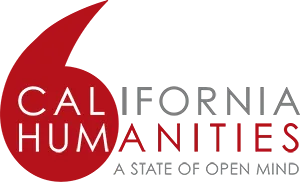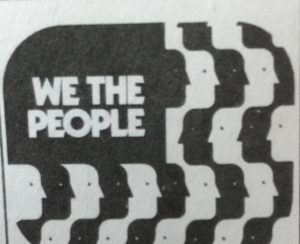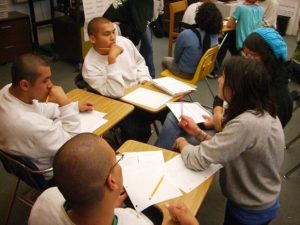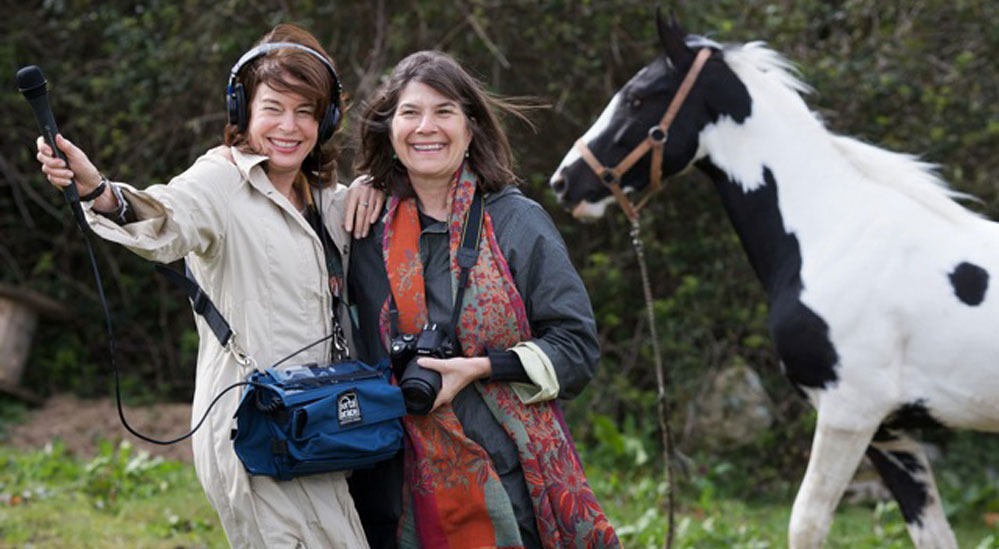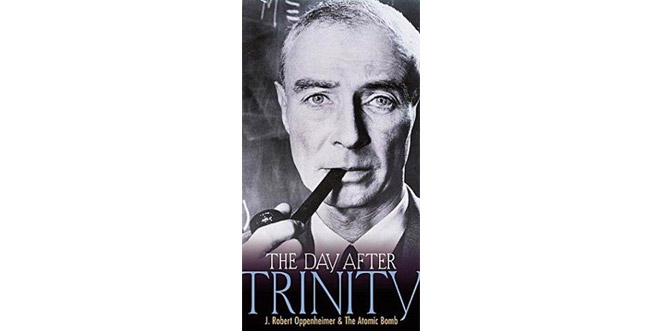What were you doing in 1975…1985…1995?
Since California Humanities first opened its doors in 1975, we have sought to encourage people to:
- learn more about the complex history of our state and all its peoples
- to gain greater understanding of our individual and collective experiences
- to think about the values, dreams, and aspirations we share so that we can work to create the California we want to see in the future.
This has been and remains at the forefront of our vision of what the humanities should be and can do – connect us all through the human experience.
When we celebrated our 40th anniversary in 2015, we decided it was a good time to take stock of what California Humanities and our partners have accomplished over the past four decades. Organized chronologically by 10-year intervals pegged to milestone events in the wider world, this timeline is supplemented by short stories and illustrative materials related to key programs, projects, and people who have made outstanding contributions to our mission. As you will see, our history reflects our deep commitment to the core values of the humanities while striving for innovation, relevance, and responsiveness to an ever-changing world.
Over time, we will be adding more material and new information to this site. If you are a past grantee, project partner, or program participant, consider sharing your experiences with us here – we’d love to hear from you. We hope you will enjoy this brief excursion through our past and that you’ll join us as we write the next chapter of California Humanities’ story.
Julie Fry
President & CEO
Credits: This timeline was developed by California Humanities staff with support from two University of California Public Fellows, Sarah Papazoglakis (UC Santa Cruz, Literature) and Cherish Asha Bolton (UC Irvine, History.) We appreciate the contributions made by other staff members, former and current, and the generosity of all those who shared their stories and impressions with us.
The California Council for the Humanities and Public Policy, one of 56 independent state humanities councils launched by National Endowment for the Humanities, officially began its work in fall 1974 when a group of academic and public leaders convened in San Francisco to confront the challenging task of determining how the disciplines of the humanities might address the difficult practical problems of public life.
Over the next year, bolstered by findings yielded by listening sessions, public forums, and meetings with stakeholders across the state, we initiated an ambitious array of activities and programs that would provide a blueprint for our future. First was a grants program, which launched in 1975, with a call for projects around the theme “The Pursuit of Community in California.” This was quickly followed by calls for proposals on a wide range of topics and approaches to public humanities programming: local history, seminars on policy issues, public radio and television projects, and the nation’s bicentennial. In 1978, we shortened our name (now California Council for the Humanities) while expanding our scope of activities to include council-conducted projects like the “Humanists in the Schools” scholars-in-residence program and “California Times,” which was a series broadcast weekly on 44 public and commercial radio stations across the state. Contemporary issues and concerns of the early 1980s were reflected in the themes we adopted: “The Fate of the Earth,” “Justice and Equity,” and “Education.” By the end of our first decade, despite facing cutbacks in public funding, Council Chairman Walter Capps observed that our presence was well-established and felt in “virtually all sections and segments” of the state.
1974-1984

1975
We The People
“We the People: Eyewitness News Year 2000” was one of the new organization’s first public programs. Produced by California Humanities (then known as “California Council for the Humanities in Public..Read More
1978
Humanists in the Schools
Humanists in the Schools (HIS), one of California Humanities’ longest-term projects, began as an experimental program to embed humanities scholars in three-year “residencies” in public schools in order to enhance..Read More
1978
Kitchen Sisters
The Kitchen Sisters, Nikki Silva and Davia Nelson, are legends in the world of radio. The Peabody Award-winning sisters are also legends here at California Humanities. When they received their..Read More
1981
Day After Trinity
Quotes from Rob Epstein: In making the Times of Harvey Milk studying what john did I learned about craft that I applied in making Times of Harvey Milk. QUALITY OF..Read More
